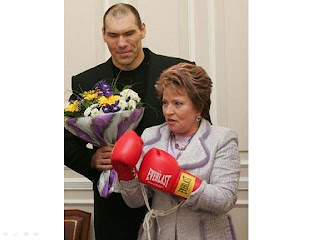วันเชงเม้ง (Qing Ming ) มีกำหนดในเดือน 5 ของจีน ซึ่งจะอยู่ในช่วงประมาณต้นเดือน เมษายน ของทุกปี ก่อนวันพิธีจะมีการทำความสะอาดหลุมฝังศพของบรรพบุรุษ หลังจากนั้นในวันพิธีจะมีการเซ่นไหว้อาหารหวานคาว ที่หลุมฝังศพ เพื่อเป็นการ รำลึกถึงคุณงามความดีของบรรพบุรุษ และเป็นการส่งอาหารให้ทุกปี เพื่อมิให้อดอยาก เมื่อไปอยู่อีกภพหนึ่ง คนจีนส่วนใหญ่ จะหยุดงานมาร่วมพิธีกัน พร้อมหน้าพร้อมตา หรือถือว่าเป็นวันพบญาติของคนจีนก็ว่าได้
เทศกาล “เชงเม้ง” เป็นเทศกาลประจำปีในการบูชาบรรพบุรุษที่ล่วงลับไปแล้วของชาวจีน การบูชาบรรพบุรุษ (Ancestor Worship) และการไว้ทุกข์ (Mourning) ถือเป็นพิธีกรรมที่สำคัญที่สุดพิธีกรรมหนึ่งของชาวจีน และปฏิบัติกันแพร่หลายสืบมาหลายพันปีจวบจนทุกวันนี้ แม้ว่าการไว้ทุกข์และการบูชาบรรพบุรุษจะเป็นความเชื่อดั้งเดิมของชาวจีน แต่ก็ได้รับการส่งเสริมสนับสนุนจาก ปรัชญาขงจื้อ
ขงจื้อ ถือว่าเป็นขนบธรรมเนียมประเพณีที่ดีงามในการปลูกฝังความกตัญญูกตเวทีแก่ชนรุ่นหลัง เป็นโอกาสที่พี่น้องลูกหลานจะมาพบปะกัน และประเพณีก็เป็นเครื่องร้อยรัดผู้คนในสังคมเข้าไว้ด้วยกัน ขงจื้อจึงมองเทศกาล “เชงเม้ง” ในแง่ของจริยธรรมทางสังคม มากกว่าในแง่อภิปรัชญาเรื่องชีวิตหลังความตาย
ที่มา: สนุก!พีเดีย
ทฤษฎีพิธีกรรมของปรัชญาขงจื้อ
ตามทฤษฎีพิธีกรรมของปรัชญาขงจื้อ จิตใจของคนเรามีคุณลักษณะ 2 ประการคือ
“สติปัญญา” (Intellect) และ “อารมณ์” (Emotion) เมื่อคนที่เรารักตายลง เรารู้ด้วยสติปัญญาว่าผู้ตายได้ตายไปแล้ว และก็ไม่มีเหตุผลเพียงพอที่จะเชื่อว่าวิญญาณจะอยู่เป็นอมตะ ถ้าหากเราทำตามสติปัญญาแต่เพียงอย่างเดียวเราก็ไม่จำเป็นต้องทำพิธีไว้ทุกข์ แต่จิตใจของเราก็มีคุณลักษณะของอารมณ์อยู่ด้วย ซึ่งทำให้เราเกิดความหวังว่าคนที่เรารักเมื่อตายไปแล้วอาจจะกลับมีชีวิตได้อีก หรือว่าวิญญาณอาจจะยังคงอยู่ต่อไปในโลกอื่น
ดังนั้นเมื่อเราถือเอาตามความนึกฝัน เราก็กลายเป็นคนเชื่อถือในไสยศาสตร์และปฏิเสธการคิดด้วยสติปัญญา เพราะฉะนั้นสิ่งที่เรารู้และสิ่งที่เราหวังจึงไม่เหมือนกัน ความรู้เป็นสิ่งสำคัญ แต่เราไม่สามารถจะอยู่ได้ด้วยความรู้เพียงอย่างเดียว เราต้องการความพึงพอใจทางด้านอารมณ์ด้วย
ตามทัศนะของปรัชญาขงจื้อ เมื่อเราประกอบพิธีไว้ทุกข์ หรือ พิธีบูชาเราหลอกตัวเองโดยที่เราเองก็รู้ตัว ใน “หนังสือแห่งพิธีกรรม” ขงจื้อกล่าวว่า “ในการเกี่ยวข้องกับคนตาย ถ้าเราปฏิบัติต่อผู้ตายเหมือนกับว่าเขาได้ตายไปจริงๆ นั่นก็เท่ากับว่าเราขาดความรักความผูกพันไปซึ่งเป็นการไม่สมควร ถ้าเราปฏิบัติต่อผู้ตายเหมือนกับว่าเขายังมีชีวิตอยู่จริงๆ นั่นก็เท่ากับว่าเราขาดสติปัญญาซึ่งก็เป็นการไม่สมควรอีกเช่นกัน”
หมายความว่าเราไม่สามารถจะปฏิบัติต่อคนตายตามที่เรารู้และตามที่เราหวังอย่างใดอย่างหนึ่งเพียงอย่างเดียว แต่เราควรจะปฏิบัติต่อคนตายตามที่เรารู้และตามที่เราหวังด้วยทั้งสองอย่าง
ในหนังสือชื่อ “ซุนจื้อ” บทที่ว่าด้วย “เรื่องราวเกี่ยวกับพิธีกรรม” (Treatise on Rites) ซุนจื้อ สานุศิษย์คนสำคัญของขงจื้อ กล่าวว่า “พิธีกรรมเป็นเรื่องของการปฏิบัติต่อชีวิตและความตายเป็นจุดสุดท้าย ถ้าเราปฏิบัติต่อจุดเริ่มต้นและจุดสุดท้ายดีแล้ว วิถีทางของความเป็นมนุษย์ก็จะสมบูรณ์ ถ้าเราปฏิบัติต่อบิดามารดาด้วยดี ในขณะที่ท่านมีชีวิตอยู่ แต่มิได้ปฏิบัติต่อท่านเมื่อท่านถึงแก่กรรมลง นั่นก็เท่ากับว่าเราให้ความเคารพต่อพ่อแม่ในขณะที่ท่านรู้เท่านั้น และได้ละเลยท่านเมื่อท่านไม่รู้
ความตายของคนๆหนึ่ง หมายความว่าเขาจากไปชั่วนิรันดร นับเป็นโอกาสสุดท้ายที่ลูกจะได้รับใช้พ่อแม่ ดังนั้นหน้าที่ของพิธีไว้ทุกข์ก็คือ การทำความหมายของชีวิตและความตายให้ชัดเจน เป็นการอำลาผู้ตายด้วยความเศร้าและความเคารพ และเป็นการทำจุดสุดท้ายของมนุษย์ให้สมบูรณ์ ”
ข้อมูลจาก
http://www.duangden.com/
The Qingming Festival
The Qingming Festival, Clear Bright Festival, Ancestors Day or Tomb Sweeping Day is a traditional Chinese festival on the 104th day after the winter solstice (or the 15th day from the Spring Equinox), usually occurring around April 5 of the Gregorian calendar. Astronomically it is also a solar term. The Qingming festival falls on the first day of the fifth solar term, named Qingming. Its name denotes a time for people to go outside and enjoy the greenery of springtime tend to the graves of departed ones.
The holiday is known by a number names in the English language:
- All Souls Day (not to be confused with the Roman Catholic holiday, All Souls Day, of the same name)
- Clear Bright Festival
- Ancestors Day
- Festival for Tending Graves
- Grave Sweeping Day
- Chinese Memorial Day
- Tomb Sweeping Day
- Spring Remembrance
Tomb Sweeping Day and Clear Bright Festival are the most common English translations of Qingming Festival. Tomb Sweeping Day is used in several English language newspapers published in Taiwan.
Origin

Qingming Festival originated from Hanshi Day (寒食节, literally, Day with cold food only), a memorial day for Jie Zitui (介子推, or Jie Zhitui, 介子推). Jie Zitui died in 636 BC in the Spring and Autumn Period. He was one of many followers of Duke Wen of Jin before he became a Duke. One time, during Wen's 19 years of exile, they didn't have any food and Jie prepared some meat soup for Wen. Wen enjoyed it a lot and wondered where Jie got the soup. It turned out Jie had cut a piece of meat from his own thigh to make the soup. Wen was so moved he promised to reward him one day. However, Jie was not the type of person who sought rewards. Instead, he just wanted to help Wen to return to Jin to become Duke. Once Wen became Duke, Jie resigned and stayed away from the Duke. Duke Wen rewarded the people who helped him in the decades, but for some reason he forgot to reward Jie, who by then had moved into the forest with his mother. Duke Wen went to the forest, but couldn't find Jie. Heeding suggestions from his officials, Duke Wen ordered men to set the forest on fire to force out Jie, however, Jie died in the fire. Feeling remorseful, Duke Wen ordered three days without fire to honour Jie's memory. The county where Jie died is still called Jiexiu (介休, literally meaning the place Jie rests forever).
Qingming has a tradition stretching back more than 2,500 years. Its origin is credited to the Tang Emperor Xuanzong in 732. Wealthy citizens in China were reportedly holding too many extravagant and ostentatiously expensive ceremonies in honour of their ancestors. Emperor Xuanzong, seeking to curb this practice, declared that respects could be formally paid at ancestors' graves only on Qingming. The observance of Qingming found a firm place in Chinese culture and continued uninterrupted for over two millennia. In 1949 the Communist Party of China repealed the holiday. Observance of Qingming remained suppressed until 2008, when the Party reinstated the holiday.
Celebration
The Qingming Festival is an opportunity for celebrants to remember and honour their ancestors at grave sites. Young and old pray before the ancestors, sweep the tombs and offer food, tea, wine, chopsticks, joss paper accessories, and/or libation to the ancestors. The rites have a long tradition in Asia, especially among farmers. Some people carry willow branches with them on Qingming, or put willow branches on their gates and/or front doors. They believe that willow branches help ward off the evil spirit that wanders on Qingming. Also on Qingming people go on family outings, start the spring plowing, sing, dance, and Qingming is a time where young couples start courting. Another popular thing to do is fly kites (in shapes of animals or characters from Chinese opera). Others carry flowers instead of burning paper, incense or firecrackers as is common.
The holiday is often marked by people paying respects to those who died in events considered sensitive in China. The April Fifth Movement and the Tiananmen Incident were major events on Qingming that took place in the history of the People's Republic of China. When Premier Zhou Enlai died in 1976, thousands visited him during the festival to pay their respects. Many also pay respects to victims of the Tiananmen Square protests in 1989 and the graves of Zhao Ziyang and Yang Jia in areas where rights of free expression are generally recognized, as in Hong Kong; in most areas of China such observances are suppressed and all public mention of such subjects is taboo. In Taiwan the national holiday is observed on April 5 because the ruling Kuomintang moved it to that date in commemoration of the death of Chiang Kai-shek on April 5. The holiday is nevertheless observed in the traditional manner, with families gathering to honour their own ancestors, visit and maintain their family shrines, and share traditional meals.

Despite having no holiday status, the overseas Chinese communities in Southeast Asian nations such as those in Singapore and Malaysia take this festival seriously; deep in heritage, rituals and strict decorum. Qing Ming in Malaysia is an elaborate family function or a clan feast (usually organized by the respective clan association) to commemorate and honour their late relations at grave site and their distant ancestry of China at home altar, clan temple or a makeshift altar in a Buddhist or Taoist temple. For the oversea community, Qing ming festival is very much a family heritage and at the same, a family obligation. The overseas Chinese see this festival as a time to reflect, honour and give thanks to their forefathers. The oversea Chinese normally visit the graves of their late relations at the nearest weekend of the actual date. According to the ancient custom, grave site veneration is only feasible 10 days before and after Qingming Festival. If the visit is not on the actual date normally veneration before Qingming is encouraged. Qingming Festival in Malaysia and Singapore normally started early in the morning, with the ancestral veneration at home altar- paying respect to the distant ancestors from China. This would be followed by visiting the graves of their close relations in the country. Some would take the extent of filial piety to visit the graves of their ancestors in mainland China. Traditionally, family will burn paper money (paper have imprint of money) and paper replica of some material good such car, maid, home, phone, and etc. In Chinese culture, even though a person died, he/she may still need all of these in the afterlife. There should always an even number of dishes put in front of the grave and a bowl of rice with incense stick upright. Then, family members start taking turn to bow before the tomb of the ancestors. Bowing will go in order, which starts with the most senior member of the family and so on. After the ancestor worship at the grave site, the whole family or the whole clan would be feasting the food and drinks they brought for the worship at the site or nearby gardens in the memorial park, signifying family reunion with the ancestors.
Hanshi, the day before Qingming, was created by Chong'er, the Duke Wen of the state of Jin during the Spring and Autumn Period. The festival was established after Chong'er accidentally burned to death his personal friend and servant Jie Zhitui (介之推) (or Jie Zitui) and Jie Zitui's mother. Chong'er ordered the hills they were hiding in set on fire in hopes that Jie Zitui would return to his service, but the fire killed Jie and his mother. On Hanshi, people were not allowed to use fires to heat up food, thus nicknaming it the Cold Food Festival. Eventually, 300 years ago, the Hanshi "celebration" was combined with the Qingming festival, but later abandoned by most people.
Source: wikipedia
Photos: google

























































